PROJECTS
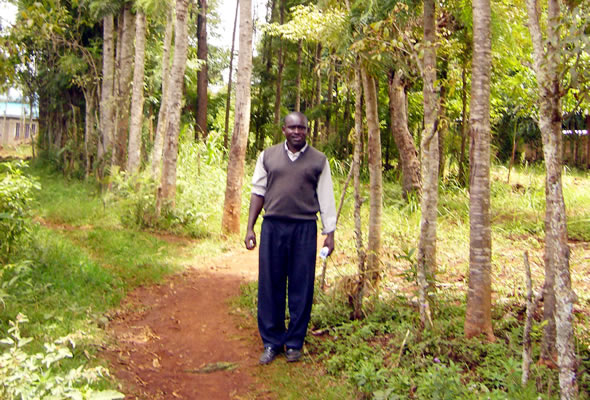
Novel and sustainable agricultural practices are essential for food security, given the negative impact of climate- change and variability, in developing and emerging economies. This will provide jobs as well as guarantee the livelihood of smallholder farmers. Thus, smallholder farmers can scale the poverty threshold and increase income above subsistence-level. This form of agriculture may also provide a new model of sustainable agriculture financing for financial institutions and promote rural financial inclusion.
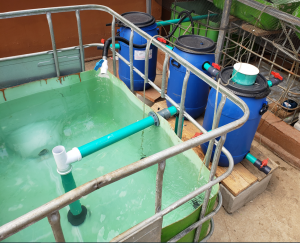
Recirculating Aquaculture System (RAS) for Sustainable Urban Farming in Sub-Saharan Africa: Self-help and AgriTech for Women in West Africa (SANFU II) (2022 till Date)
Conventional flow-through aquaculture systems in urban areas of Nigeria are plagued by extensive land requirement, lack of technological innovations as well as effluent discharge making them unsustainable. Thus, adoption of small-scale Recirculating Aquaculture System (RAS) is being taunted as a way to improve urban livelihoods, especially for women and vulnerable groups, food and nutritional security, and reduce environmental pressure in urban Sub-Saharan Africa. The benefits of RAS have been long recognized but until recently, micro and small-scale RAS could not be profitably managed by urban households thus did not find its way into urban farming. The SANFU II project designed, implemented and validated a simplified RAS for urban farming and collaborated with RFisheries under a Deutsche Gesellschaft für Internationale Zusammenarbeit GmbH (GIZ) supported program.
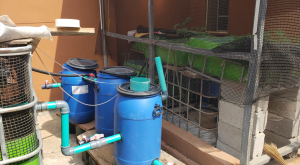
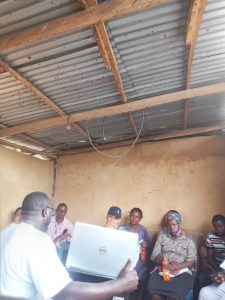
FOCUS GROUP DISCUSSION (FGD)with ALLIANZ Multiple purpose co-operative soceity in LAGOS, nigeria (SEPTEMBER 2021).
Presentation (and consultation on) of sustainability (social, economic, and ecological) dimension of recirculating aquaculture system (RAS), aquaponics and hydroponics from the SANFU Project to fish farmers of the Allianz Multiple Purpose Co-operative Society in Shasha, Lagos, Nigeria. This also provided an avenue to discuss the challenges of conventional aquaculture and opportunities associated with RAS, aquaponics and hydroponics adoption.

A pragmatic approach to tackling urban nutritional and food insecurity, that is starting to gain some attention in sub-Saharan Africa is (sustainable) aquaponics. Aquaponics is a form of soilless agricultural system that uses fish water to fertilize and provide nutrients to vegetables, fruit plants. The sustainability pillar of such a system relates to the use of off-grid solar power to address erratic power supply often observed in certain urban cities such as Lagos and reduce CO2 emission associated with agricultural production. Sustainable aquaponics requires on the one hand, limited space, which is ideal for urban areas, and may not necessary compete for vital scare resources (e.g. land), while promoting the re-use of materials, e.g., plastic bottle as planting pots, which are often a menace in urban areas of developing countries. On the other hand, sustainable aquaponics requires water quality and potential hydrogen (ph) management as well as technical skills. Limited urban soilless agricultural system and lack of quantitative (socioeconomic, agronomic and environmental) data on their potential contribution to food self-sufficiency in urban and rural areas of sub-Saharan Africa, here Lagos, Nigeria, raises a number of questions:
- What are the potential benefits of sustainable aquaponics, among others, for food and nutritional security (vegetables and protein intake) in an urban context?
- What are the barriers to establishing sustainable aquaponics systems in an urban context?
Addressing the aforementioned questions is the objective of the SANFU project.
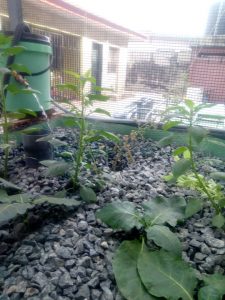
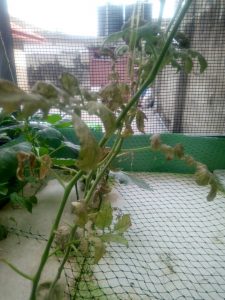
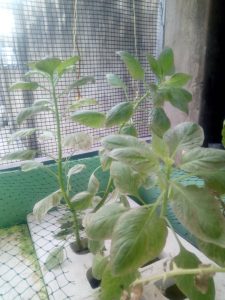
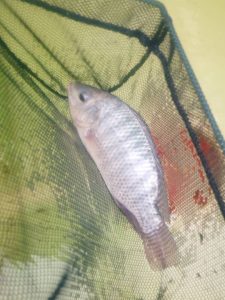
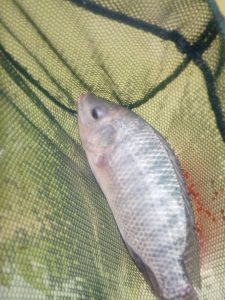
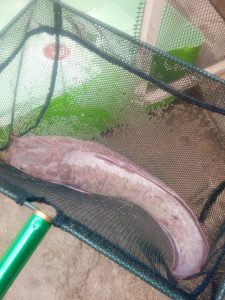
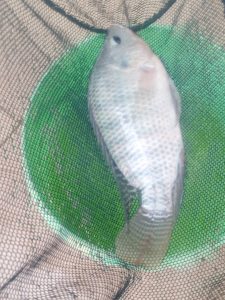
Pictures above are the current state (10/01/2020) of plants and fishes of the Aquaponic system under Harmattan conditions.
Videos from June 2020
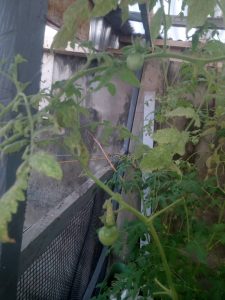
Tomatoes 10/2020
Awareness Campaign and Stakeholder Engagement (2020)
Fish protein and vegetables for more than five households in Alimosho Local Government Area of Lagos State, Nigeria (2020)
